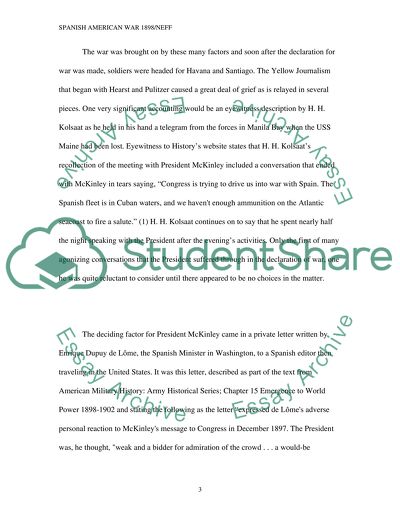Cite this document
(“Spanish-American War 1898 Essay Example | Topics and Well Written Essays - 1500 words”, n.d.)
Spanish-American War 1898 Essay Example | Topics and Well Written Essays - 1500 words. Retrieved from https://studentshare.org/miscellaneous/1515223-spanish-american-war-1898
Spanish-American War 1898 Essay Example | Topics and Well Written Essays - 1500 words. Retrieved from https://studentshare.org/miscellaneous/1515223-spanish-american-war-1898
(Spanish-American War 1898 Essay Example | Topics and Well Written Essays - 1500 Words)
Spanish-American War 1898 Essay Example | Topics and Well Written Essays - 1500 Words. https://studentshare.org/miscellaneous/1515223-spanish-american-war-1898.
Spanish-American War 1898 Essay Example | Topics and Well Written Essays - 1500 Words. https://studentshare.org/miscellaneous/1515223-spanish-american-war-1898.
“Spanish-American War 1898 Essay Example | Topics and Well Written Essays - 1500 Words”, n.d. https://studentshare.org/miscellaneous/1515223-spanish-american-war-1898.


